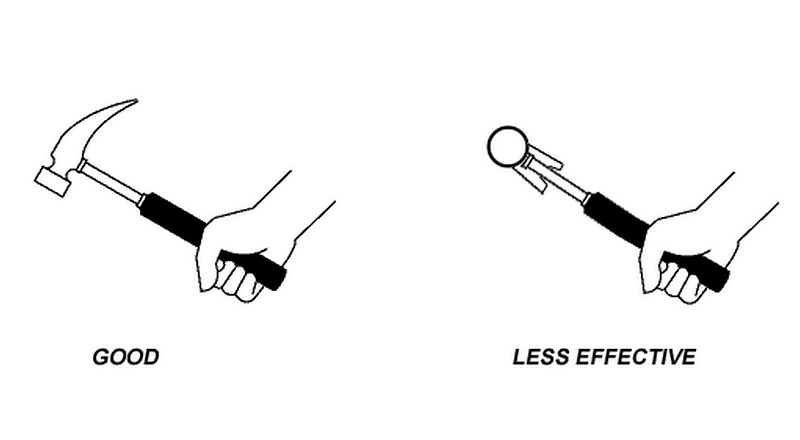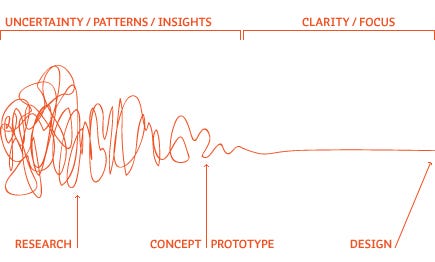This post was originally posted on Medium.com, written by Ivy Ong from @ivyong_ph
DVa, Pitch Perfect, OpenCeption, Go Map Go – just some of the witty names these fun peeps came up w/ for their #opendata #InnoWeek tools! pic.twitter.com/G4cnCE5GYW
— Open Data Lab JKT (@ODLabJkt) November 24, 2016
Last week, around 22 innovators met at the Southeast Asia Open Data Innovation week organized by Open Data Lab Jakarta of the World Wide Web Foundation. This was definitely not your typical open data event. And by typical I’m talking about lightning talks, multiple panels (even manels!), unconferences, technical trainings, hackathons, and other variations. Granted, activities have various objectives and are built for specific people in mind but what resonated with me was the question this event sought to answer. When the dust has settled and the cool swag and stickers have been distributed, we are faced with a consistent pain point — is there anything else we can do to help practitioners, policymakers, and researchers do their open data work better and with more impact?
And that’s where this innovative event comes in.
The event was a way to come up with an ‘open data innovation toolbox’ and the rationale of Open Data Lab Jakarta is “to improve the design, practice and implementation of open data initiatives because we believe open data can help solve the region’s most pressing social challenges.”
Apart from the novelty of bringing people with diverse knowledge and expertise to build practical tools (think worksheet), the critical challenge was to ground our outputs in context and not forget why we’re designing it.
Pitches ongoing at #opendata #innoweek. Feedback hats a nice way to keep the room engaged pic.twitter.com/kT0V7YUadz
— George Hodge (@lurglomond) November 24, 2016
We likewise created and agreed on criteria for assessing what makes a good tool: a clear value proposition, resource efficient, accessible and usable, sustainability, and ‘forkability’ (meaning adaptable… we’ve no idea if this is a real word!).
It was a meaningful and memorable learning experience for me and the three points below are a way to look back at the process of creation and collaboration with the innovators, the Jakarta Lab team, and coaches:
“Every Tool is a Weapon If You Hold it Right”

This was the title of an exhibit of prints on silk scarves that I saw a couple of years back. For some reason, that was the line that popped in my head at the end of the workshop. There are multiple ways to design, implement, and take stock of various open data initiatives. I’ve seen that some open data practitioners — because of the autopilot mode of being in continuous implementation — often forget to take a few steps back, be critical of ‘how’ things were done, and assess the appropriateness of the tools used.
If we are to make open data relevant in people’s lives and address social inequities, the challenge begins with questions: What tools have I been using? What intermediate outcomes have these led to? What was the context when I used it? What factors helped or hindered when I used these tools? If appropriate, what tool am I missing so I can design/implement high-impact open data projects? These are sample questions and I’m sure there’s more.
The point? It’s important to have a heightened awareness of the tools/methods/approaches you bring to an open data initiative. Know what it’s for, what the limits are, and what your context calls for. I’d like to think that if you know your ‘weapons’, you can pick which battle to wage and when to call for help.
There’s No App For That
At first, some of us struggled with our respective definitions of what an open data tool is. I suppose it didn’t help that we’ve been so used to various stories of “There’s an app for solving x!” or “There’s a ___-a-thon addressing y!” We had to disassociate the term with something that attempts to solve a problem ala if-then scenario. So when the discussion shifted to examples of what is meant by a tool (more samples), that sparked the energy burst to start working on it in time for our presentations so that we could all get feedback based on the criteria we agreed on.

If you think about the term ‘the devil is in the details’, well… we were swimming in that space before we had our respective Aha moments for our tools. The process reminded me of the Design Squiggle, specifically the Uncertainty/Patterns/Insights mode.
We didn’t build a snazzy app with an awesome name but if the tools we made can help others thrive during the Uncertainty mode, such as making an informed decision on who to partner with for an open data project, isn’t that quite powerful too? (Sidenote: we tried our best to make awesome names too!)
A Thinking Space
Heading home inspired and energised after productive workshops at Open Data Inno Week Jakarta w/ @ODLabJkt #InnoWeek pic.twitter.com/pnNzZEQzY2
— Cam Grant (@camdgrant) November 27, 2016
Whenever I think about an innovation lab or a start-up, I have visual images of colorful bean bags, open space design, standing desks, and IKEA furniture. In my mind these were attempts to provide a series of ‘anomalies’ that sought to trigger a thought: this new environment would ask me to practice new behaviors.
Having the chance to co-create and learn with the 22 innovators and Open Data Lab Jakarta members was definitely an anomaly in my schedule. I’m grateful for that opportunity because the Jakarta Lab provided us with thinking space — not only a physical space that allowed us to bob balloons when we were mulling over a question — but a chance to generate ideas, dig deep into our unique experiences, get challenged by difficult questions from our peers, and not be afraid to show a quickly created storyboard made of clay, legos, and cardboard cutouts. Then get hit by more questions and still survive the public presentations.
From that safe space of learning, we get to go home to test what we’ve created and, in the process, generate more knowledge of what works, what missed the mark, and recalibrate.
I hope the Lab continues to play this unique role for open data in Southeast Asia. I hope this was just the beginning to have a networked community that aims to be more involved in open data innovation. Creating the space where innovators have a chance for “in-person creative clashes” is crucial if we are to attempt doing open data work differently and with better impact.
(And there’s no app for that.)
Questions questions questions
This event was a great first attempt and I wonder if the questions below are helpful. I’ve no idea if this has been done in specific sectors!
- How can this type of workshop affect those involved with designing, implementing, and evaluating open data and SDGs?
- Have crisis mappers / disaster mitigation / reconstruction and rehabilitation practitioners, policymakers, civic tech orgs, and researchers done something along these lines? Quite apt especially for the Southeast Asian region
- I wonder what the effect would be to have a workshop that has significantly more government innovators mixed with a few practitioners and subject matter experts?
About the author: Ivy Ong is one of the participants of the closed-door workshop of the Southeast Asia Open Data Innovation Week. She used to be part of the Open Data Lab in Jakarta and the Open Data Task Force PH under the DBM PH. You can reach and follow her @ivyong_ph.
Leave a Reply